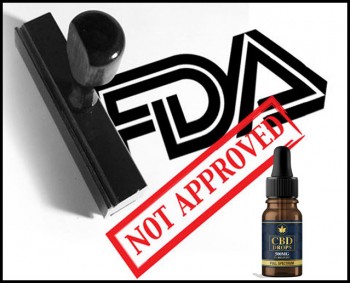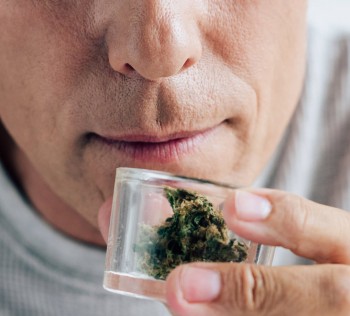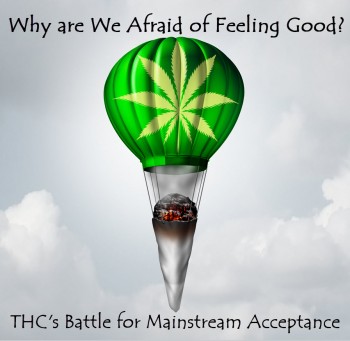
When Following the Science doesn’t apply to Cannabis!
The phrase "follow the science" gained widespread popularity during the Covid-19 pandemic, with officials frequently invoking it to justify policies and decisions. However, this catchphrase is problematic - while it may feel reassuring, it often lacks concrete meaning.
The fundamental issue is that science is an ongoing process of discovery, not a fixed endpoint. "Following the science" will never lead to immutable conclusions, as scientific understanding constantly evolves. Moreover, the direction of scientific inquiry is shaped by those who interpret and lead it, introducing an element of subjectivity.
This is evident in the case of cannabis, where "science" was used as a pretext to maintain prohibition rather than objectively evaluating the plant's properties and effects. The government's approach to cannabis exemplifies how the rallying cry of "following the science" can be selectively applied and distorted.
In this article, I will critically examine recent statements made by the current Drug Czar regarding cannabis rescheduling. Through in-depth analysis, I will argue that the proposed move to Schedule III is not a science-based decision but rather a manifestation of Big Pharma's backup plan for cannabis legalization - one that prioritizes corporate interests over public health and individual liberty.
Analyzing Gupta
In his statement, Drug Czar Rahul Gupta invokes the familiar refrain of "following science" to justify the proposed rescheduling of cannabis. While this sentiment is laudable on its face, a closer examination reveals troubling implications.
Gupta suggests that a Schedule III designation will lead to the development of FDA-approved drugs, touting the potential for "new products that may be able to help with or cure diseases." However, this framing obscures the fact that the FDA is heavily influenced by the pharmaceutical industry.
With Big Pharma partially funding the agency, there is a risk that corporate interests will shape the direction of cannabis research and product development, prioritizing patentable medicines over whole-plant remedies.
Moreover, Gupta's claim that rescheduling will allow for the recognition of cannabis' medical uses and open up research is misleading. The medicinal properties of cannabis have been well-established for decades, thanks in large part to the pioneering work of researchers like Dr. Raphael Mechoulam in the 1970s.
The lack of robust research in this field is not due to an absence of scientific interest or potential, but rather the result of deliberate suppression and obstruction by the government.
By failing to acknowledge this history of oppression and presenting the limited research as a mere oversight, Gupta's statement whitewashes the past and sets the stage for a future where Big Pharma, not the public, is the primary beneficiary of cannabis reform.
The emphasis on developing new products "to cure diseases" suggests that the end goal is not to make whole-plant cannabis accessible for personal use, but to create a pipeline for pharmaceutical companies to profit from patented medicines derived from the plant.
In essence, the Drug Czar's comments, while cloaked in the language of science and public health, appear to be laying the groundwork for a cannabis landscape dominated by Big Pharma - one that could leave patients and consumers with fewer options and less autonomy.
What we know about cannabis?
For the sake of argument, let's "follow the science" as the Drug Czar suggests. The scientific evidence overwhelmingly supports the medical benefits of cannabis. To date, there are over 20,000 published studies on the plant, its compounds, and their effects on human health. This begs the question: how many more studies does the U.S. government require before making an informed assessment? 100,000? A million?
At what point does the mountain of evidence become sufficient for policymakers to acknowledge the therapeutic potential of cannabis?
Moreover, the use of cannabis as a medicine is not a modern invention. Historical records show that cannabis has been utilized for thousands of years, with references to its medicinal properties appearing in pharmacopeias predating the 1900s.
This long history of human use provides valuable insight into the safety and efficacy of the plant.
Beyond its medicinal applications, cannabis, particularly hemp, has played a crucial role in the development of human civilization. It was likely one of the first crops cultivated by early humans, used for food, fiber, and shelter.
The government's portrayal of cannabis as a novel and dangerous substance ignores this rich history and the plant's longstanding coexistence with humanity.
In fact, it is the prohibition of cannabis that is a relatively recent phenomenon, not its use. The science is clear: the benefits of cannabis legalization far outweigh the potential risks. Claiming that we need more research before making a decision is not only disingenuous but arguably anti-science, as it disregards the vast body of evidence that already exists.
By perpetuating the narrative that we don't know enough about cannabis, policymakers are not "following the science" but rather delaying action in the face of overwhelming data. This stance appears to be more about preserving the status quo and protecting entrenched interests than genuinely pursuing public health and well-being.
Don’t get fooled by catchphrases!
Catchphrases are designed to grab your attention and, in the process, short-circuit your critical thinking abilities. Take a closer look at the term itself, and you'll see that its purpose is to "catch" your interest and emotional investment.
Consider slogans like "Build Back Better," "Make America Great Again," or "Follow the Science." While they may evoke positive feelings or a sense of agreement, they often lack substance.
What specific processes or policies do these phrases entail? Whose interpretation of "better," "great," or "science" are we meant to accept?
The moment you buy into a catchphrase, you risk surrendering your ability to think critically about the issue at hand. These slogans serve as feel-good substitutes for rigorous analysis and nuanced understanding.
Politicians and corporations have long exploited this human tendency, using catchy slogans to sway public opinion on sensitive topics and bend the will of the masses to serve their own interests. I would know, I’ve done marketing for over 15 years.
While I have made my position on the proposed rescheduling of cannabis to Schedule III clear, I want to use this opportunity to highlight how these linguistic tricks can be used to manipulate your reasoning. By recognizing and resisting the allure of catchphrases, we can maintain our intellectual independence and make informed decisions based on facts and evidence.
As engaged citizens, it is our responsibility to approach political and corporate messaging with a critical eye. A healthy dose of skepticism can be a powerful defense against manipulation.
Question the motives behind every policy decision and ask yourself: does this serve the public interest, or does it primarily benefit the politician's corporate sponsors?
In the end, the key to navigating the complex landscape of political and social discourse is to remain free, aware, and committed to critical thinking. Don't let catchphrases and slogans do your thinking for you. Embrace nuance, seek out diverse perspectives, and always strive to base your opinions on reason and evidence, not just emotional appeals.







